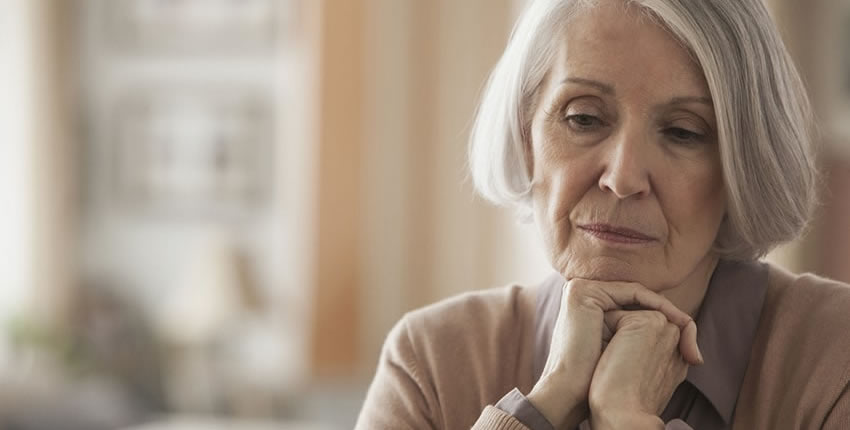Depression and Cancer
Emotional distress associated with cancer can be debilitating for patients and their families.

Up to half of cancer patients experience some form of emotional distress related to their cancer diagnosis or treatment, says Michelle Riba, M.D., M.S., director of the PsychOncology Program at the University of Michigan Rogel Cancer Center. That can come in the form of anxiety, depression and post-traumatic stress disorder.
But as survivors deal with the looming threat of recurrence, it can linger long after treatment ends.
“Many of our patients have anxiety and depression or have problems with sleep,” says Riba. “They’re having to deal with psychiatric conditions at the same time that they’re trying to navigate their way through cancer treatment.”
She spoke recently about how crucial it is for people to seek help when dealing with emotional distress on their cancer journeys.
What signs or symptoms should patients or their families look for?
Riba: I think it’s important for families or patients to look for changes. Maybe they are having trouble sleeping or a loss of appetite. Maybe they’ve gone back to unhealthy coping mechanisms such as smoking, alcohol or overeating.
One might say, “Who wouldn’t be depressed or anxious when given a cancer diagnosis?” but there is a range of what’s normal and not, and for many of us it’s hard to figure that out. So we want families and patients to know that the emotional aspects of this are just as important -- and for some patients even more important, in some ways -- than the oncologic diagnosis.
If they see a change, and if they think that the emotional aspects need further evaluation, they should feel very comfortable knowing it’s not a stigma and talking to their doctor about it.
Is it just patients, or are family members susceptible to emotional distress, too?
Riba: We always say that cancer is a family illness. We don’t really know who is going to be most affected or worried or have their own issues, which is why we work with our multidisciplinary team to be on the lookout for families who may need some extra help, whether it’s a significant other or children.
Sometimes it’s not what you might expect or predict based on what the patient is experiencing -- which is why it’s so important for us to be able to get the family members to come in and talk to us. They could be hiding their stress or anxiety from the family member who is in treatment, not wanting to worry them.
Kids may not be able to study and may have problems in school. We’ve had cases of kids who are embarrassed by the way their moms look with a wig and don’t want their parents to come to school events or even schedule birthday parties. Those are the kinds of things we’re on the lookout for -- important issues to try to help families with that may not come up in a busy oncology clinic. We want to help the whole family.
What therapies or treatments work for cancer patients?
Riba: You have to know the patients -- their histories, genders, ages, the kinds of cancers, the stage of their cancers and treatments -- and then try to work with them on what might be helpful, whether it’s cognitive behavioral therapy, group therapy, medication or something else.
The idea isn’t to label someone or throw medicine at them, but to help them function and do better. One of the best things we can do is to work with patients on how to be resilient and how to use coping strategies that they might have used at other times, before their cancer diagnosis.
I always use the example of exercise and sports. A good example would be a runner. They love to run; love that endorphin high. It feels good. Let’s say they have a type of cancer where they can’t run for a while. They have lost a coping mechanism they can’t do anymore.
Maybe we can help them with physical therapy or have them meet with one of our exercise physiologists who can help figure out what would be best for them. That might be the best therapy possible.
It may not be so apparent right away, sitting with a therapist talking about exercise, but these are some of the triggers for people that become a problem. We want people to get back to feeling good so that they can be resilient, and sometimes that means thinking about successful coping mechanisms that might have been discarded in the past.
What’s the most important thing for people to know about emotional distress during cancer treatment?
Riba: It’s important to destigmatize emotional and psychological issues. It’s really quite difficult to live with a chronic condition, and people need help with all of the aspects of their cancer journey. Patients are dealing with taking regular medications, seeing doctors, getting scans. They might need help not letting the worry of an upcoming scan overwhelm them and take over their lives for a couple of weeks. They’re making decisions about whether to go back to work or if they can go back to work. How do you make these decisions alone?
It’s hard to be a patient. Having a coach, an advocate, somebody to help you through can make such a difference.
